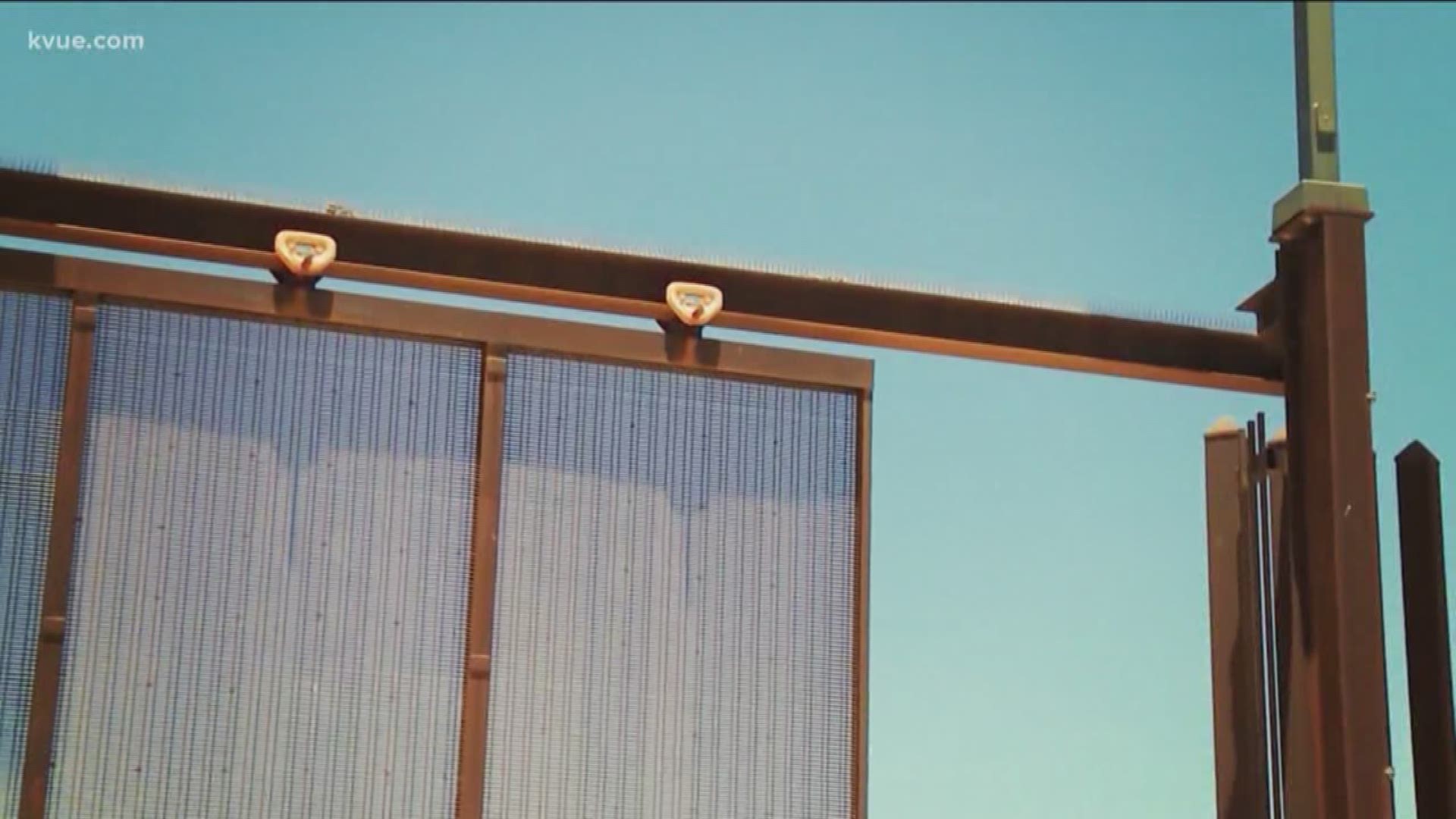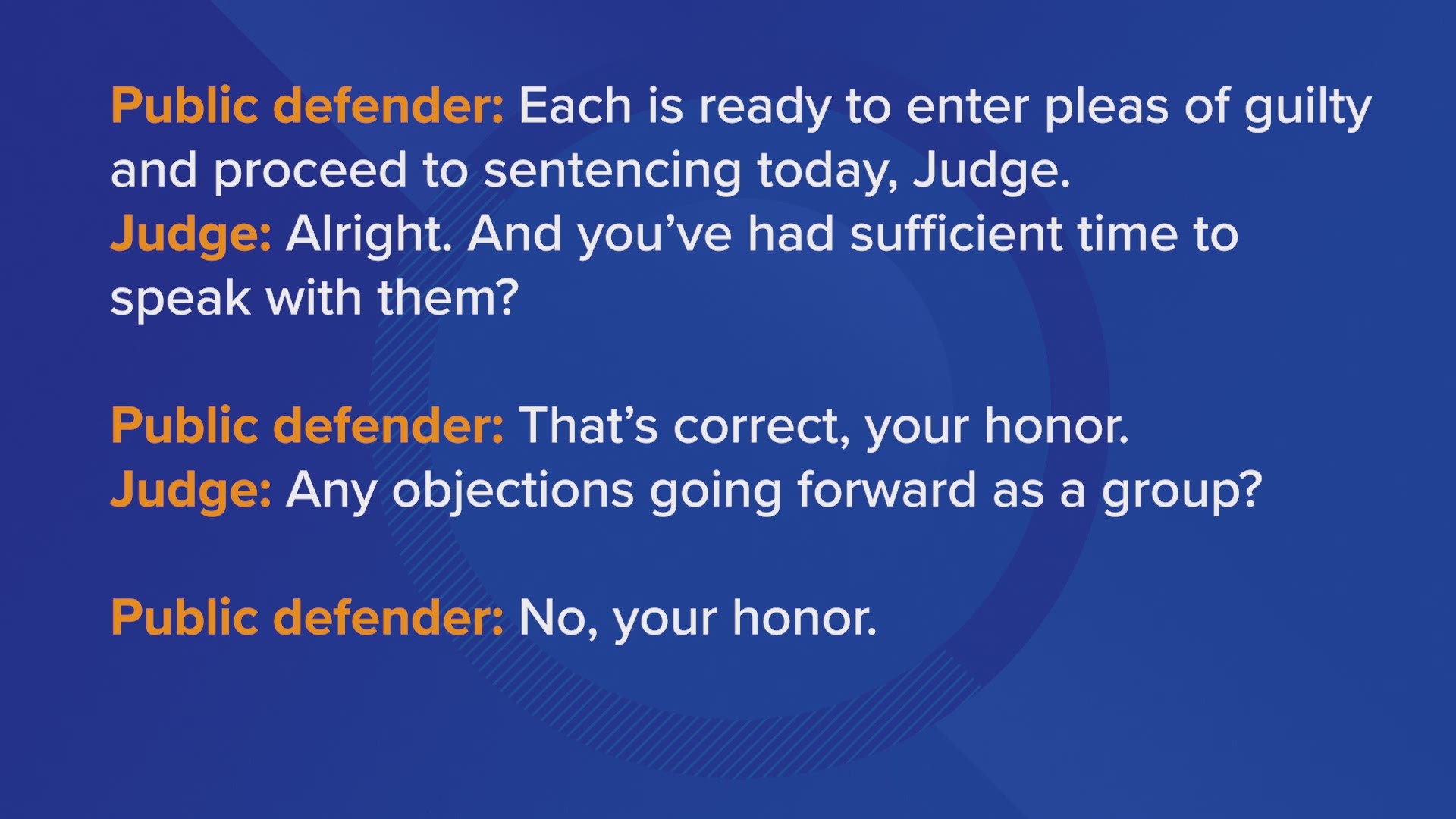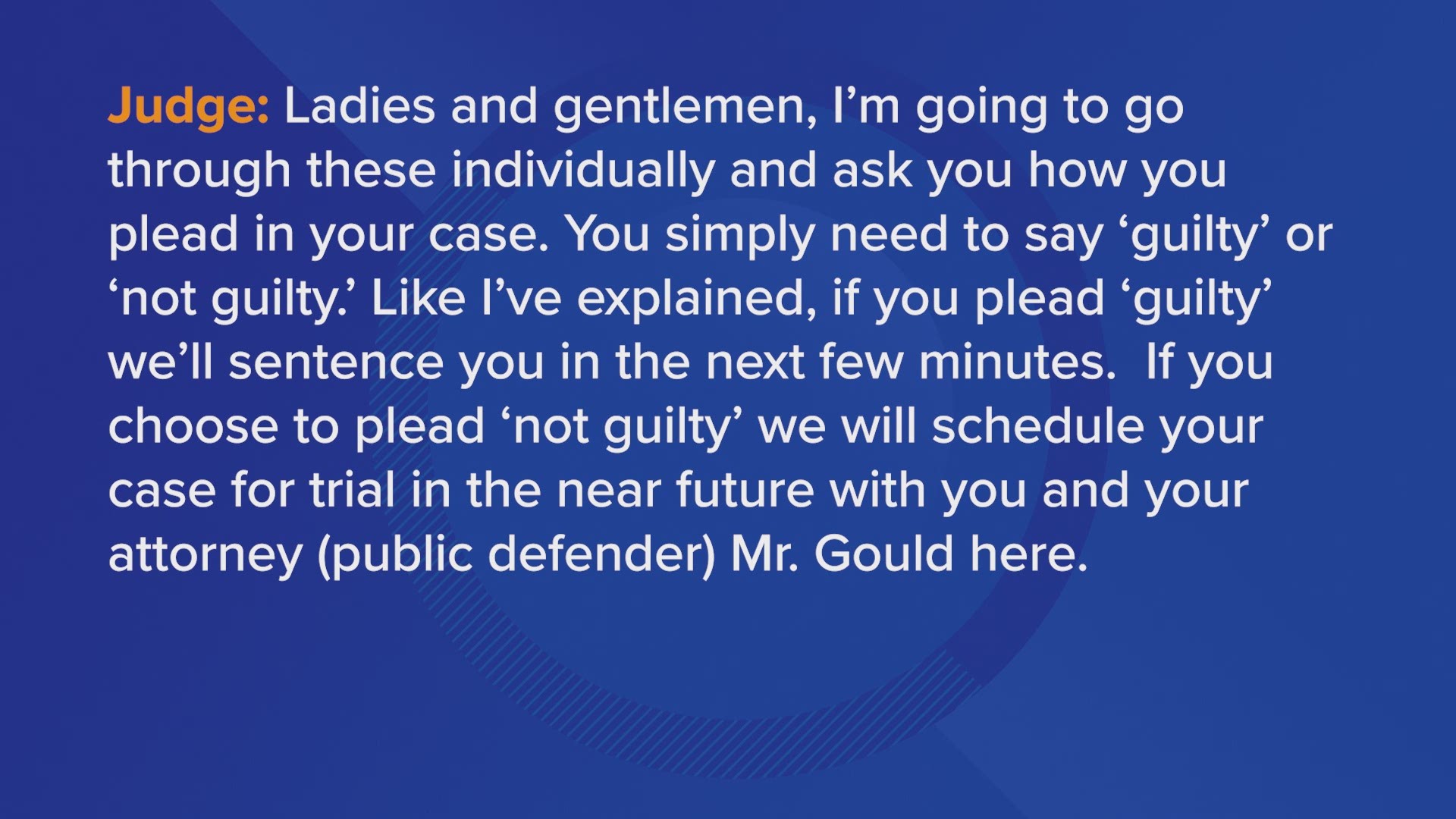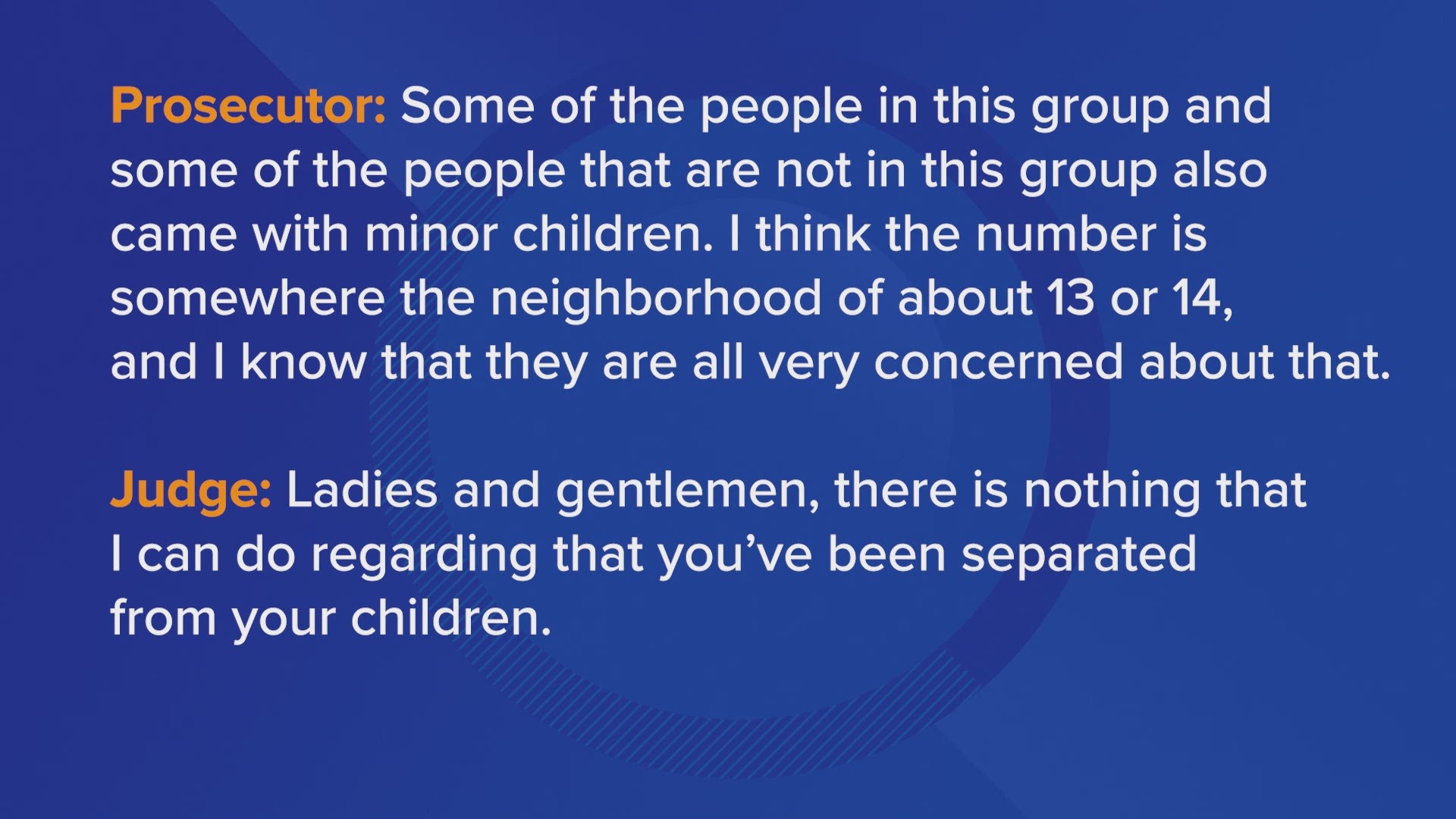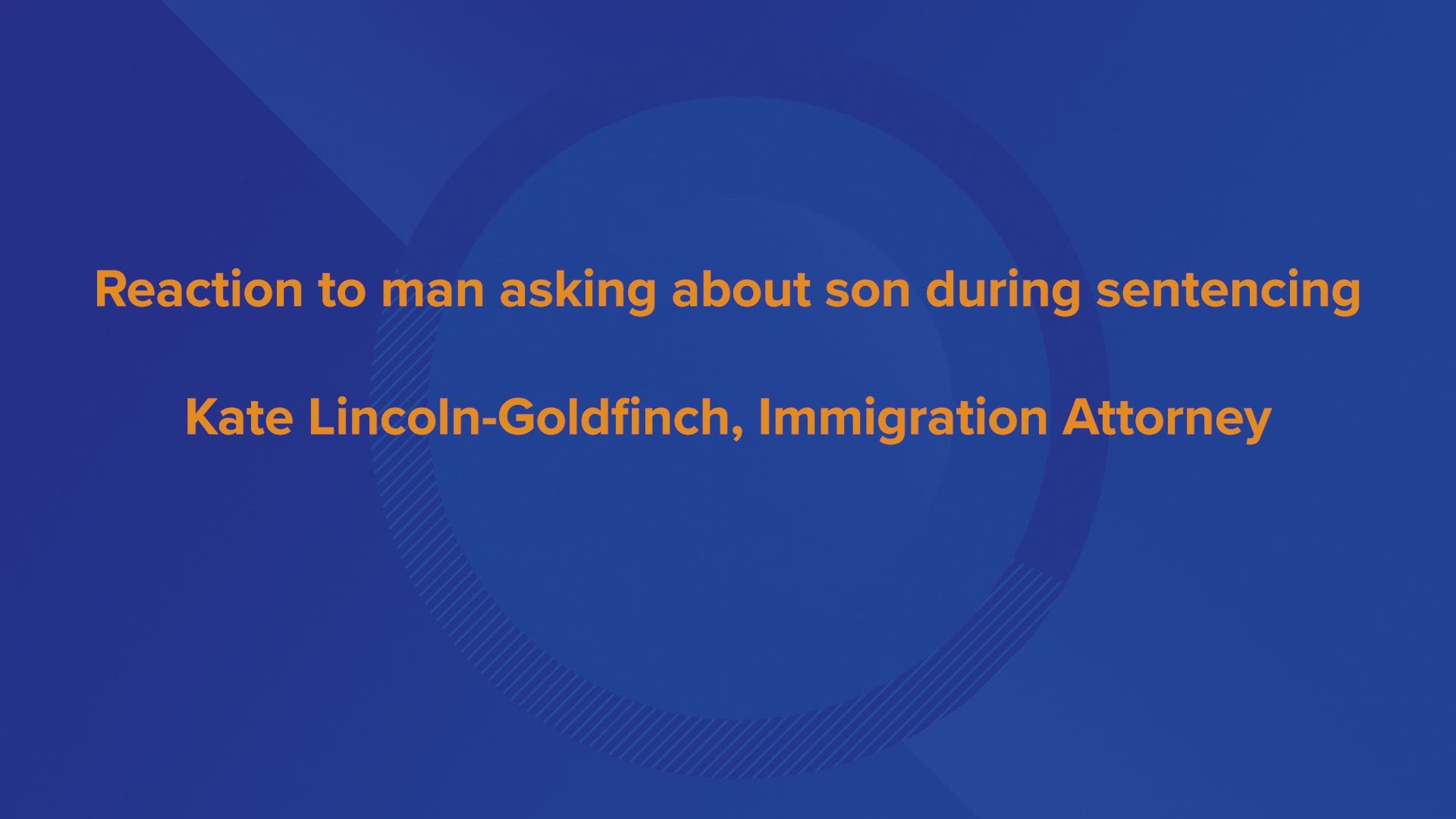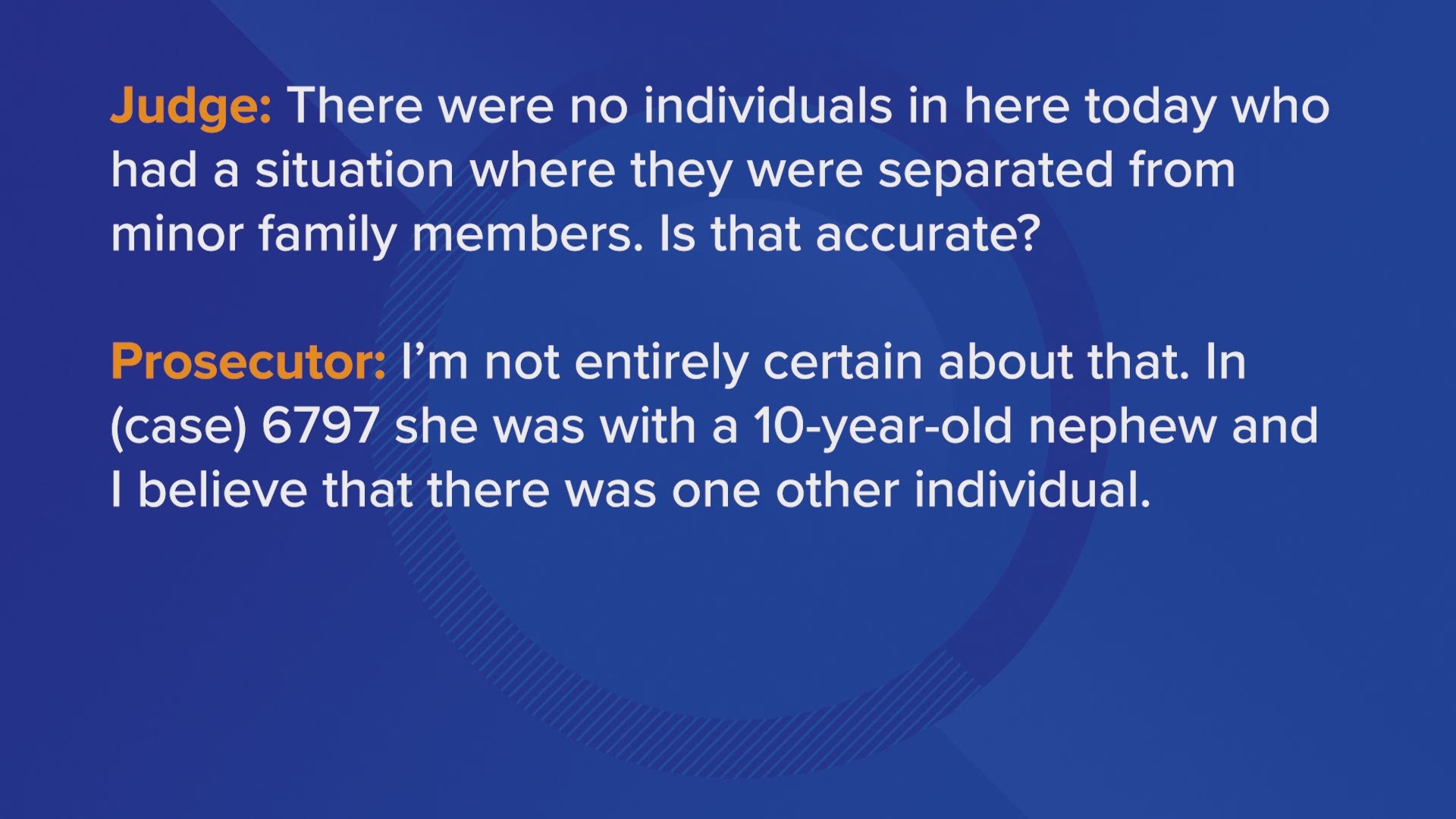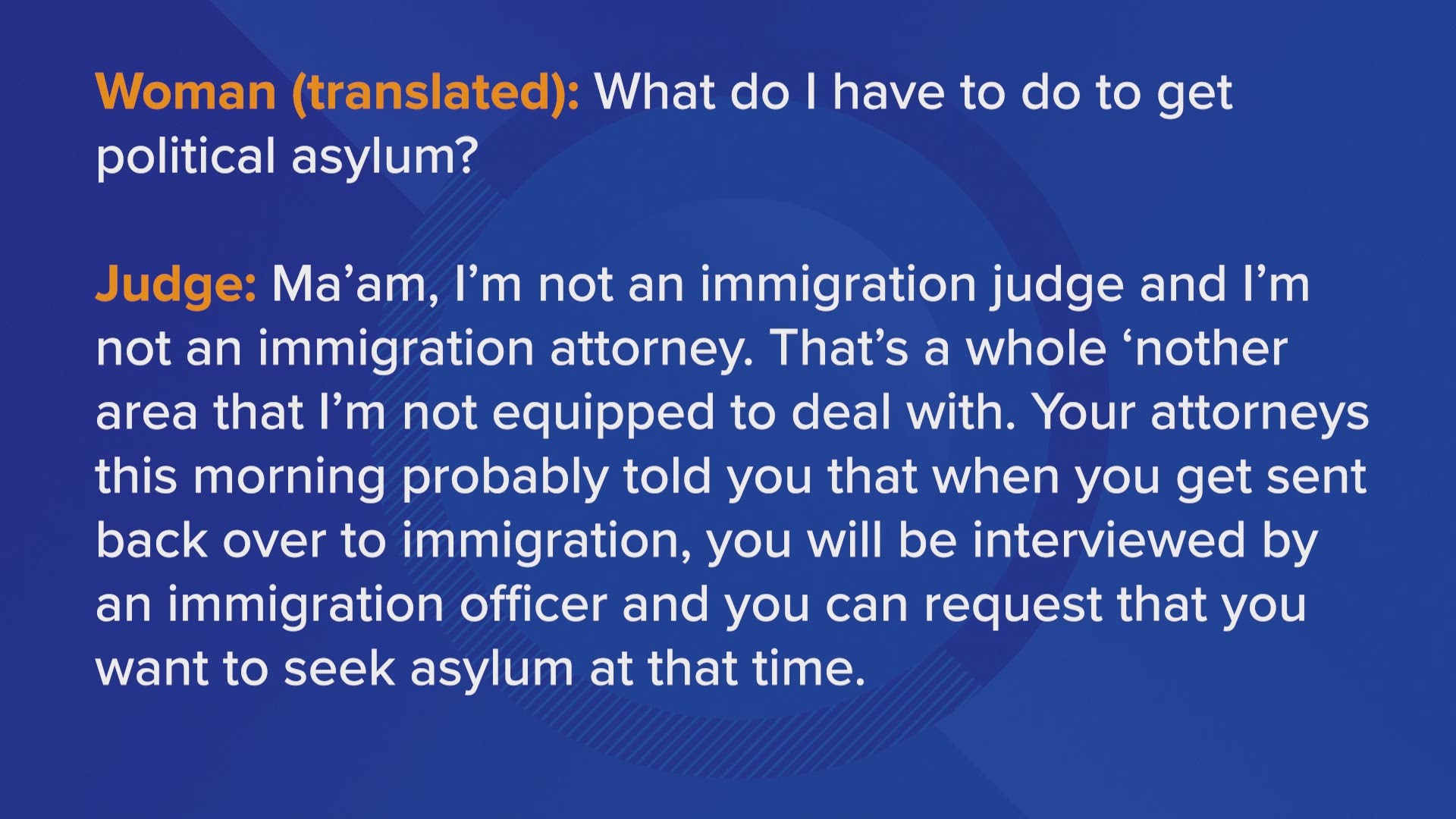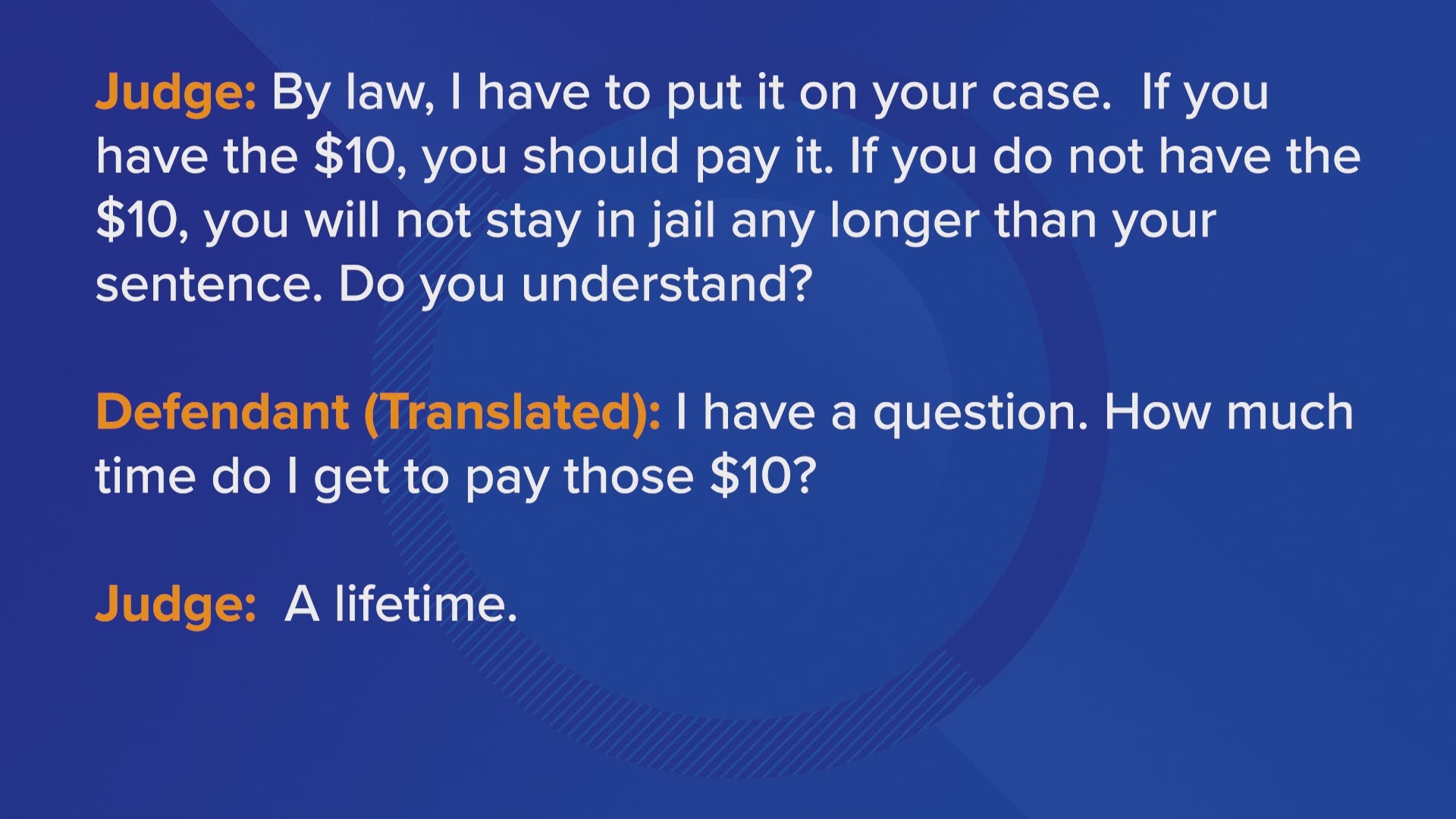MCALLEN, Texas — Last year’s “zero tolerance” policy promised to prosecute anyone who crossed the border illegally.
But data analyzed by Syracuse researchers shows only one out of three people who crossed illegally actually got prosecuted for the crime. The rest were sent straight to immigration proceedings.
So, who gets charged with a criminal offense and who doesn’t?
The KVUE Defenders analyzed audio from three hearings last year since no cameras are allowed in federal court, including magistrate court.
June 1, 2018
Seventy people filled the courtroom, all set to plead guilty to improper entry -- a violation that can carry up to six months in prison and a $250 fine.
Judge J. Scott Hacker:
You can hear dozens of people moving as they stand and take the oath before the court. This played out twice a day last summer.
The judge explained how a conviction is “almost a certainty” that they will be deported and could be denied citizenship in the future as well as admission into the future.
You can hear the guilty pleas carry on for almost nine minutes.
But not everyone who commits the crime of improper entry gets prosecuted. Most do not.
In June, one group of individuals stood out: those who faced family separation.
One man asked the judge about the process because he said no one explained how he would reunite with his son. Instead, he thought he would get direction in court.
But the judge doesn’t have that knowledge.
When parents who crossed illegally with their children faced improper entry charges, the children were separated and sent to another agency: Health and Human Services. There, the minors were classified as “unaccompanied.”
The process created confusion in court.
We played this audio for Austin immigration attorney Kate Lincoln-Goldfinch.
June 25, 2018
By mid-June, President Donald Trump issued an executive order ending family separations.
However, the term “family” was for mother and/or father and child. It didn’t cover extended family members, including grandparents, aunts and uncles nor step-children.
October 1, 2018
In October, President Trump restricted how many people could claim asylum at the international bridges.
This led to people camping out the streets in Mexico, waiting to see a Customs and Protection officer.
Court records show many people did not wait and chose to break the law, crossing illegally.
Some seemed confused about the asylum process.
But that’s not how the process works, according to Lincoln-Goldfinch.
In the cases the KVUE Defenders analyzed, most people were sentenced to time served and a $10 fine.
However, those fines do not have to be paid.
If you'd like to hear more, click here.
If you have a story idea for the Defenders, email defenders@kvue.com.
Follow Erica Proffer on Twitter @ericaproffer, Facebook @ericaprofferjournalist, and Instagram @ericaproffer.

